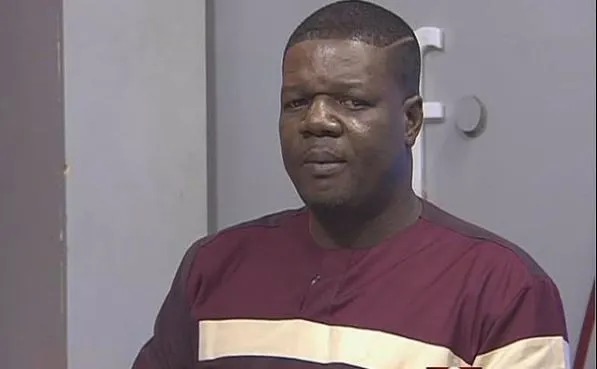South Dayi MP Rockson-Nelson Dafeamekpor has issued a stark warning over what he calls the “creeping politicization” of Ghana’s judiciary, arguing that partisan interference in judicial appointments and verdicts threatens to destabilize the country’s democratic foundations.
Speaking on The KeyPoints with Alfred Ocansey, the lawmaker singled out the controversial handling of high-profile cases like that of Gregory Afoko—a suspect in the 2015 murder of a former Upper East Regional Chairman of the New Patriotic Party (NPP)—as emblematic of a justice system increasingly swayed by political agendas.
“When judges are appointed based on loyalty to a party, not merit, the bench becomes a tool of the executive, not a guardian of the law,” Dafeamekpor asserted. He criticized the growing perception that courts prioritize political expediency over constitutional principles, particularly in cases involving opposition figures or government critics. “The judiciary must be the last bastion of fairness. But if the public sees it as an extension of the ruling party, democracy crumbles,” he added.
The MP’s remarks come amid heightened scrutiny of Ghana’s judicial independence, with civil society groups and legal experts raising red flags over opaque appointment processes and alleged bias in politically sensitive trials. Dafeamekpor pointed to the erosion of the “presumption of innocence” as a critical concern, accusing some judges of rushing to incarcerate defendants without rigorous adherence to evidentiary standards. “Justice isn’t about speed or satisfying public outrage—it’s about due process,” he stressed, referencing prolonged detentions and delayed trials that have fueled accusations of judicial weaponization.
The Gregory Afoko case, which has dragged through courts for nearly a decade amid multiple legal twists, has become a lightning rod for these debates. Afoko’s retrial, ordered by the Supreme Court in 2023 after a hung jury initially failed to reach a verdict, has drawn criticism from rights advocates who argue the proceedings reflect systemic inefficiencies and potential political pressure. While the MP stopped short of directly linking Afoko’s case to executive interference, he implied a broader pattern of justice being “tailored to fit narratives.”
Civil society organizations, including the Ghana Center for Democratic Development (CDD-Ghana), have echoed Dafeamekpor’s calls for reform. They urge a transparent, merit-based vetting process for judges, akin to systems in democracies like South Africa or Kenya, where judicial appointments involve public interviews and parliamentary oversight. “A judiciary perceived as partisan loses legitimacy—and without legitimacy, the rule of law collapses,” said legal analyst Clara Osei-Bonsu.
The government has yet to respond to the MP’s claims, but the allegations strike at a sensitive time. President Akufo-Addo’s administration has faced recurring accusations of stacking courts with allies, particularly after the 2021 appointment of Chief Justice Kwasi Anin-Yeboah, whose rulings have occasionally sparked partisan backlash. Critics argue that such appointments risk institutionalizing a “culture of deference” to the executive.
Dafeamekpor’s intervention underscores a deepening anxiety over Ghana’s democratic resilience. With elections looming in 2024, the integrity of the judiciary will likely face even fiercer scrutiny. As the MP cautioned, “A compromised court doesn’t just fail individuals—it fails the nation.” For Ghanaians weary of polarized politics, the warning is clear: without an impartial judiciary, even the strongest democracies can fracture.
